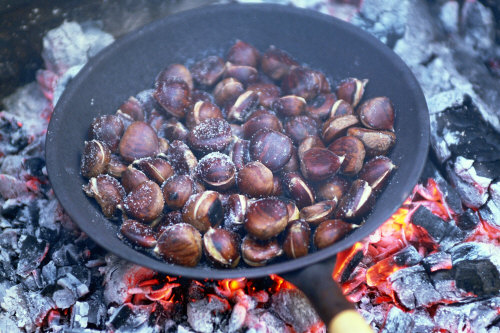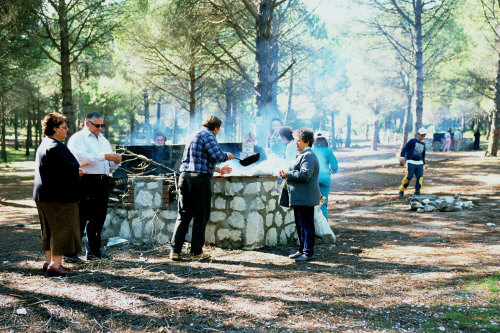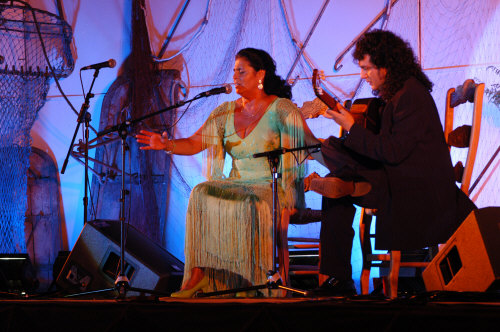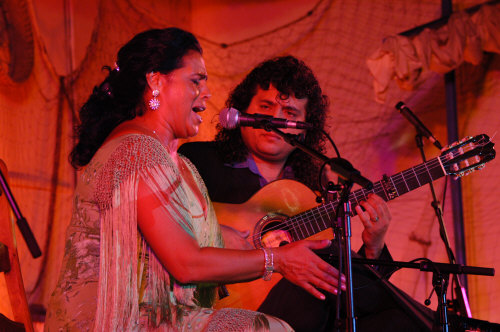|

OJÉN - FIESTAS
Fair and
Festivities in honour of San Dionisio
Aeropagita (from 9th to 12th October)
The local fair and fiestas in honour of the
patron saint, San Dionisio Aeropajita are
celebrated right in the village, where young
and old alike participate during the day in
sack races, “piñatas”, street parades with
giant heads, and tapas in the local bars.
And at night, the star event is the dancing
until dawn in the village square. The
saint’s day is the 9th October, the first
day of the fair, when San Dionisio, a martyr
who was beheaded, is taken out in
procession. His statue shows his head
resting on one of his hands.
What makes this fair unique is that it is
very popular, with a high level of
participation, with locals mingling
harmoniously with the many visitors. On the
12th October, the last day of the fair, is
the procession of the Virgen del Pilar
(Virgin of the Pillar).
Easter Week
(depending on the Christian calendar)
The date of Easter in calendar varies
according to the liturgical year and it is
celebrated following the Christian tradition
of the representation of the passion and
death of Jesus Christ. Tradition, respect
and the emotion of the whole village that
accompanies the religious statues through
the white streets of the village, are the
indentifying marks of the Easter Week in
Ojén. On Resurrection Sunday, it is the
custom to eat “hornazos” a kind of bun with
a boiled egg inside, for which this day is
popularly known as the “the day of the
hornazos".
Pilgrimage (1st
May)
A festive celebration that is rather
curious, in that no religious image is taken
out in procession. The locals and visitors
go on foot and on horseback to a natural
beauty spot known as Los Llanos de Pula,
where the greenery of the pine groves
contrasts with the bright colours of the
clothes and costumes worn by the people. It
is an unavoidable excuse to share dancing,
singing, food and drink. Apart from a wide
range of delicacies that are common to other
neighbouring villages, it is also tradition
to eat the typical choricitos (spicy little
chorizo sausages) from Ojén.
Tostón (a chestnut
roast) (on 1st November and the following
Sunday)
As is the custom in several of these
mountain villages, on the 1st November, All
Saints Day, the locals meet with family and
friends to spend the day in the country,
where they roast chestnuts that are washed
down by aguardiente (literally “firewater”).
On the following Sunday, a tostón (chestnut
roast) is held, offered by the San Dionisio
Cultural Association, which attracts a great
many visitors to the village, giving the
festival a marked multinational flavor.


“Castillo del
Cante” Flamenco Festival (last week in July
or first week in August)
An event that has been held since 1975, and
is now a tradition with great prestige, in
which some of the most important flamenco
artists have performed. The stage has been
shared by artists of the category of
Fosforito, Camarón de la Isla, El Cabrero or
La Niña de la Puebla. During this summer
evening, the singing, dancing and guitar
playing can be accompanied by a variety of
delicious tapas washed down by good wine.


Carnival and the
Day of Andalusia (28th February)
The fact of the Carnival coinciding with the
Day of Andalusia is motive for the villagers
of Ojen to participate in extraordinary
merrymaking, with open-air dancing under a
marquee in the village. The ingenious
fancy-dress costumes are the stars of the
night of the 28th February, under the spell
of carnival-time.
|